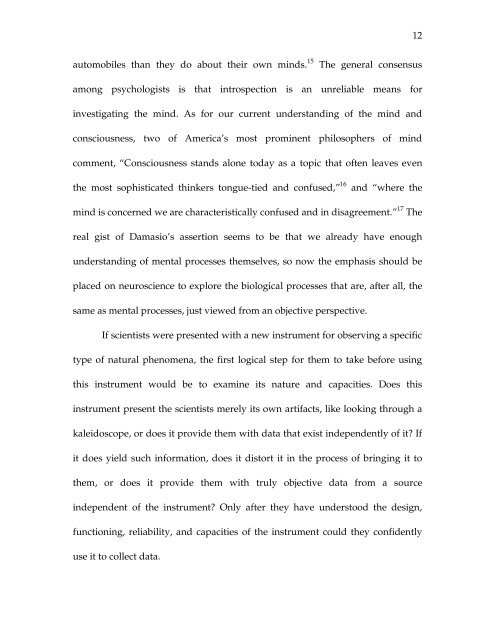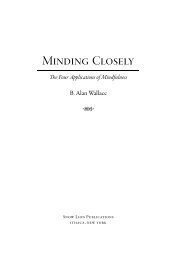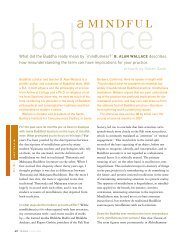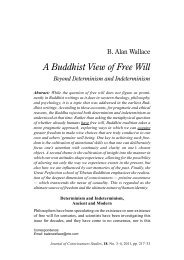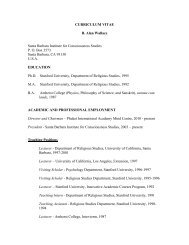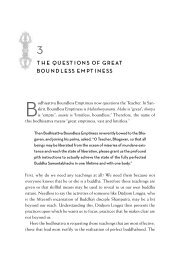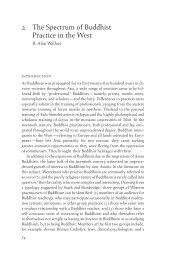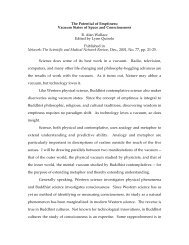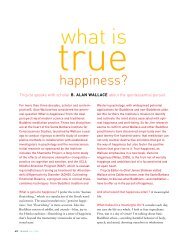“A Science of Consciousness: Buddhism (1), the ... - B. Alan Wallace
“A Science of Consciousness: Buddhism (1), the ... - B. Alan Wallace
“A Science of Consciousness: Buddhism (1), the ... - B. Alan Wallace
You also want an ePaper? Increase the reach of your titles
YUMPU automatically turns print PDFs into web optimized ePapers that Google loves.
automobiles than <strong>the</strong>y do about <strong>the</strong>ir own minds. 15 The general consensus<br />
among psychologists is that introspection is an unreliable means for<br />
investigating <strong>the</strong> mind. As for our current understanding <strong>of</strong> <strong>the</strong> mind and<br />
consciousness, two <strong>of</strong> America’s most prominent philosophers <strong>of</strong> mind<br />
comment, “<strong>Consciousness</strong> stands alone today as a topic that <strong>of</strong>ten leaves even<br />
<strong>the</strong> most sophisticated thinkers tongue-tied and confused,” 16 and “where <strong>the</strong><br />
mind is concerned we are characteristically confused and in disagreement.” 17 The<br />
real gist <strong>of</strong> Damasio’s assertion seems to be that we already have enough<br />
understanding <strong>of</strong> mental processes <strong>the</strong>mselves, so now <strong>the</strong> emphasis should be<br />
placed on neuroscience to explore <strong>the</strong> biological processes that are, after all, <strong>the</strong><br />
same as mental processes, just viewed from an objective perspective.<br />
If scientists were presented with a new instrument for observing a specific<br />
type <strong>of</strong> natural phenomena, <strong>the</strong> first logical step for <strong>the</strong>m to take before using<br />
this instrument would be to examine its nature and capacities. Does this<br />
instrument present <strong>the</strong> scientists merely its own artifacts, like looking through a<br />
kaleidoscope, or does it provide <strong>the</strong>m with data that exist independently <strong>of</strong> it? If<br />
it does yield such information, does it distort it in <strong>the</strong> process <strong>of</strong> bringing it to<br />
<strong>the</strong>m, or does it provide <strong>the</strong>m with truly objective data from a source<br />
independent <strong>of</strong> <strong>the</strong> instrument? Only after <strong>the</strong>y have understood <strong>the</strong> design,<br />
functioning, reliability, and capacities <strong>of</strong> <strong>the</strong> instrument could <strong>the</strong>y confidently<br />
use it to collect data.<br />
12


